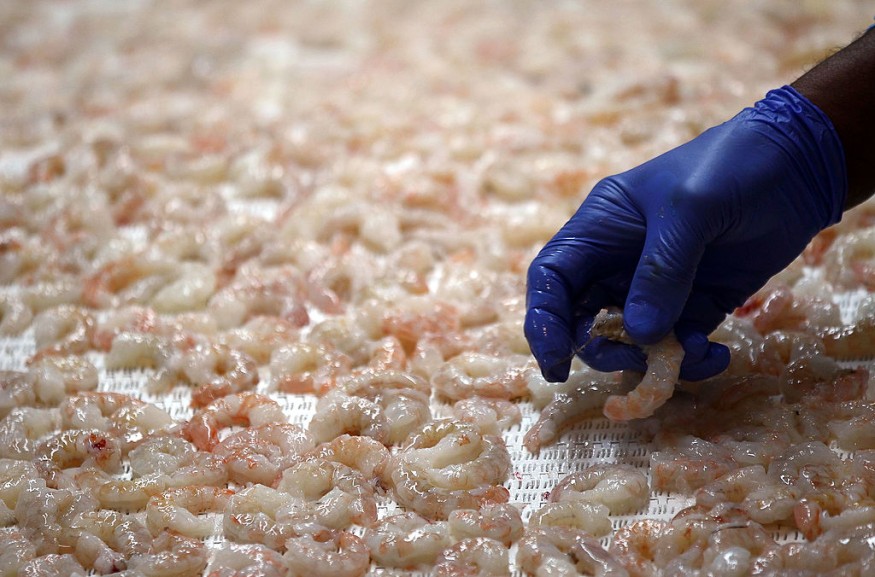
A major recallis underway for frozen shrimp sold at Kroger and its affiliated stores after fears of radioactive contamination surfaced.
Seattle-based seafood distributor AquaStar Corp. has pulled nearly 157,000 pounds of shrimp from store shelves due to possible exposure to cesium-137 — a radioactive chemical linked to nuclear waste, AP News reported.
The FDA says the shrimp might have been packed or handled in unsafe conditions, which could have let the radioactive substance cesium-137 get into the products.
While the health risk is considered low, the FDA warns that being exposed to cesium-137 over and over — even in small amounts — could lead to serious health issues down the line, including a higher risk of cancer.
The recall involves several popular shrimp products:
- Kroger Raw Colossal EZ Peel Shrimp (49,920 bags)
- Kroger Mercado Cooked Medium Peeled Tail-Off Shrimp (18,000 bags)
- AquaStar Raw Peeled Tail-on Shrimp Skewers (17,264 bags)
More shrimp sold at Kroger stores recalled for possible radioactive contamination https://t.co/nGaSjV1dvn pic.twitter.com/38eXGhAfNQ
— The Independent (@Independent) September 22, 2025
Shrimp Recall Linked to Indonesian Factory Contamination
These shrimp products were sold in more than 30 states from June 12 to September 17 at stores like Kroger, Ralphs, Food 4 Less, Fred Meyer, and others.
If you're not sure whether your shrimp is part of the recall, you can check the full list of lot numbers and packaging details on the FDA's website.
Cesium-137 is a radioactive material that comes from nuclear reactions. It's often used in things like medical devices and industrial machines.
While small amounts can be found in nature, eating food with higher levels of it isn't safe — especially over time, as it can build up in the body and possibly lead to health problems.
According to USA Today, experts say the contamination likely came from an industrial site in Indonesia, where the shrimp were processed by PT. Bahari Makmur Sejati (BMS Foods).
US authorities have blocked further imports from the company until the issue is resolved.
"No product that tested positive for cesium-137 has been sold to consumers," the FDA stated. "But some shrimp may have been processed in unsanitary conditions, which could still pose a health concern."
If you bought any of the recalled shrimp, do not eat it. Throw it away or return it to the store for a full refund. If you're worried about exposure, the FDA recommends contacting a healthcare provider.
Customers can also call AquaStar at 1-800-331-3440 (Monday to Friday, 8 a.m. to 5 p.m.) for questions or concerns.
Originally published on vcpost.com



